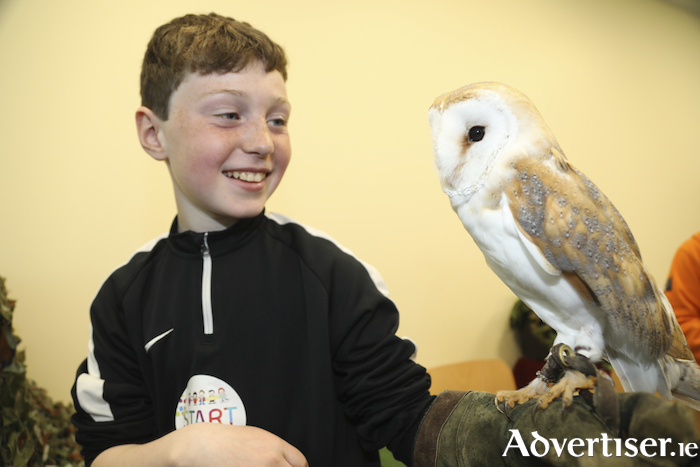Three Galway primary schools have been named top of the class in a national competition showcasing randomised trials.
The Schools Teaching Awareness of Randomised Trials (START ) competition is held every year, with this year’s best randomised trials awarded the START Trophy 2022.
This year, the top three are all from Galway, with their success and their trial questions celebrated at a special event at NUI Galway, as part of the Health Research Board-Trials Methodology Research Network.
The top three primary schools, and their trial questions, are Scoil Bhríge agus Bhreandáin Naofa, Corrandulla, Galway (Do five minute movement breaks between subjects help improve concentration? ); Gaelscoil Dara, Renmore (An bhfoghlaimíonn páistí níos fearr ó mhúinteoir ná ó chéile? Do children learn better from a teacher or from each other? ); and Claregalway Educate Together (Does five minutes of exercise help children focus for a test compared to children who do not exercise? ).
As part of the START competition, primary schools were invited to create their own fun randomised trial, with the top three brought on campus to celebrate their achievements and explain some of their work.
It is a fun, project-based, approach to learning about randomised trials. It also helps meet key aspects of the current school curriculum in several subjects including maths, science, SPHE, and ICT.
“We started this competition for two reasons," explained Professor Declan Devane, scientific director of the Health Research Board-Trials Methodology Research Network at NUI Galway, which runs the competition. "Firstly, we wanted to raise awareness of the importance of randomised trials with children. Secondly, we wanted to harness the creativity and imagination of children in the design, conduct, analysis, and reporting of trials.
"The high standard and variety of applications we receive each year demonstrates that the START competition has indeed raised the awareness of randomised trials and capitalised on children’s innate ability to explain difficult concepts clearly and in a fun way. We are very proud of all our applications.”
Dr Mairead O’Driscoll, chief executive at the Health Research Board, said: “The questions devised by each of these finalists are fascinating. The curiosity and creativity of their bright young minds perfectly captures the essence of the START competition. I really look forward to seeing the answers their randomised trials deliver. However, I do not envy the judging panel as it will be extremely difficult choosing a winner. The best of luck to all finalists from everyone at the HRB.”
START encourages children to learn more about healthcare decisions and how we can improve health and wellbeing by learning about randomised trials.
Sometimes called clinical trials, randomised trials are a type of research study often used to find out if a new medicine or treatment works. The decision about which treatment a person gets is decided at random (often by a computer ) rather than being decided by the doctor or research participant. This means that we can be more certain that any differences in the results between the groups are caused by the treatment, and not by differences in the characteristics of the people who take part in the trials.
The competition is run by the Health Research Board-Trials Methodology Research Network (HRB-TRMN ), which is a collaborative network across five university partners - NUI Galway, University College Cork, Trinity College Dublin, University College Dublin, and the University of Limerick. It is held to celebrate International Clinical Trials Day and the anniversary of the first clinical trial, carried out in 1747 in the British Navy.
To learn more about START visit startcompetition.com, and follow @STARTSchools on social media or facebook.com/hrb tmrn.

